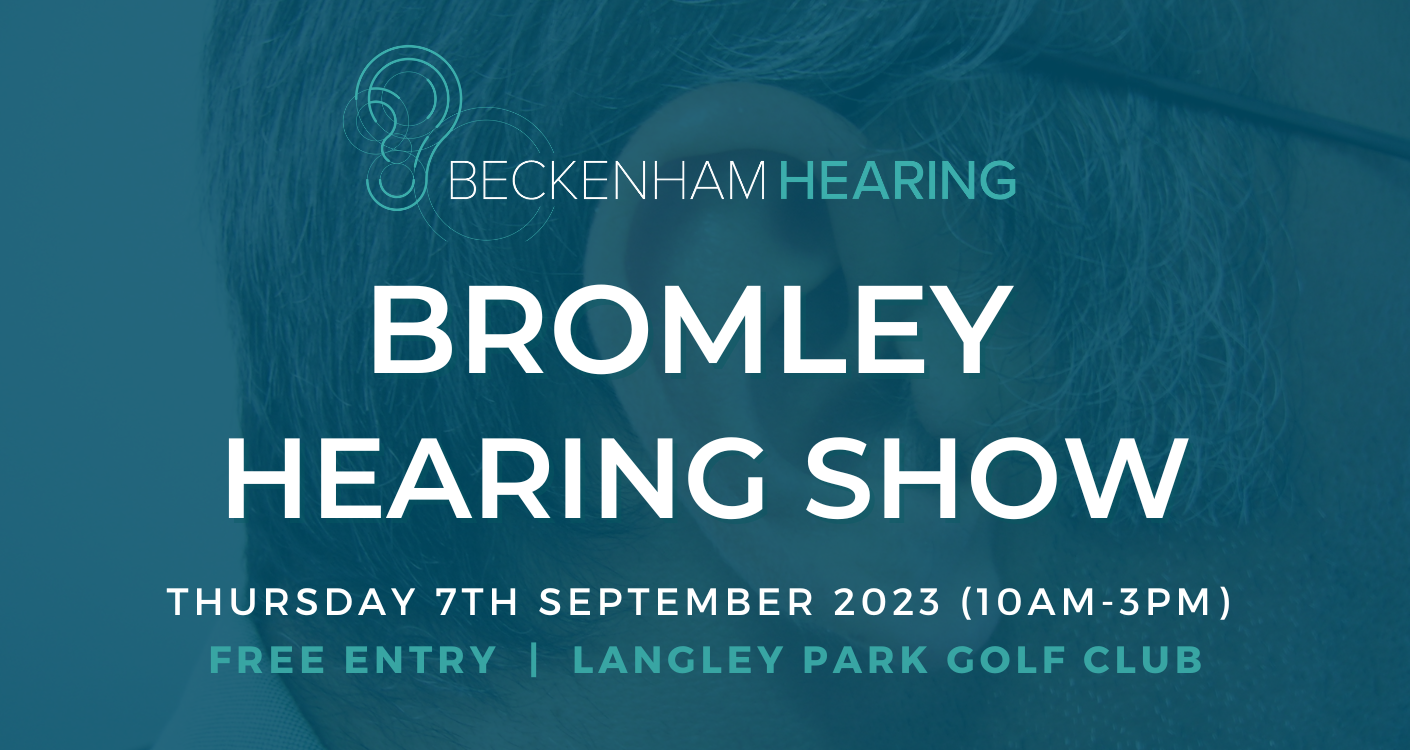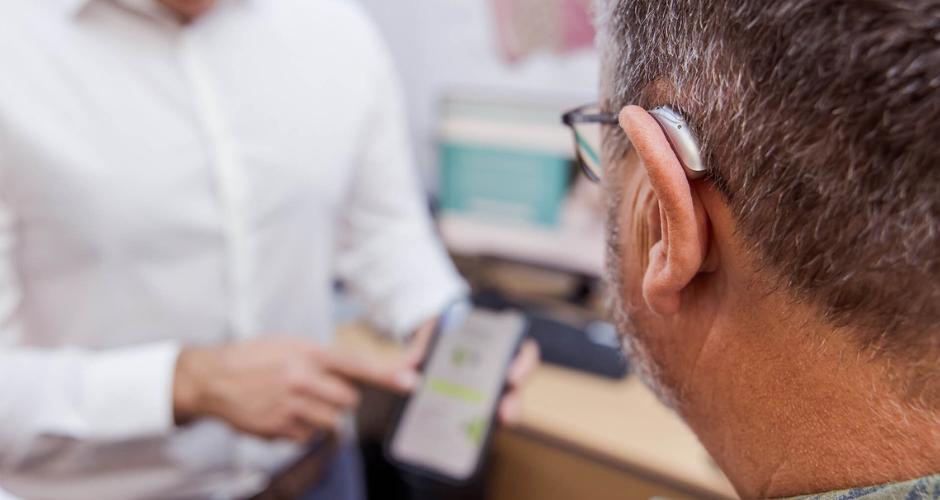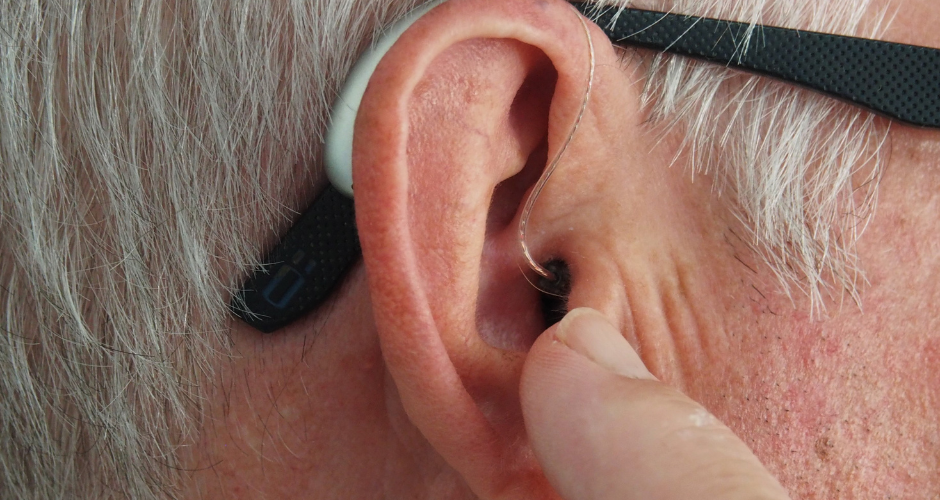What happens during a hearing test at Beckenham Hearing?
If you have never had your hearing tested before, it may feel a little daunting not knowing what to expect on your first visit. But do not worry, there is nothing to fear. Our experienced hearing care professionals will guide you through the process.
What to expect at your hearing test?
Your hearing test will be carried out by a fully qualified audiologist who will take you through a range of tests and assessments to determine whether you are experiencing a hearing loss and if so, what type and the degree.
Your hearing history
Before your physical examination, your Audiologist will take a history of your hearing and the problems you have had to deal with and how they affect your life. It is useful if you fill out the ‘Initial hearing loss assessment’ questionnaire and bring it with you, as this will provide a useful starting point for the discussion.
Hearing Test
For a complete evaluation of your hearing capability, we will conduct a full range of tests:
Video otoscopy examination – an inspection of the ear canal and eardrum using a miniature camera to assess general condition, including the presence of ear wax that we can both see.
Tympanometry
We will check the condition of your middle ear by using tympanometry. This device uses air pressure to check that all the bones in your middle ear are working correctly and will also identify if you have any eustachian tube dysfunction, preventing you from equalising the pressure in your middle ear correctly. This condition can cause a conductive hearing loss known as glue ear and can leave excess fluid in your middle ear cavity and feels similar to the dull hearing sensation felt on an aeroplane caused by the air pressure.
Pure Tone audiometry test – involves listening to different sounds through headphones to evaluate the softest sounds you can hear across the full frequency range of your hearing. We do this in a soundproofed room to make sure that the test is accurate.
Speech test – involves listening to sentences through the headphones in the presence of background noise to evaluate your ability to understand speech and establish how well you would do with appropriate hearing aids.
A hearing test provides a measurement of the sensitivity of a person’s hearing across the full range of speech. The test will measure the quietest sound that can be heard at several points across the speech range – this hearing test is termed an audiogram.
Sound is measured in two key ways:
- volume or level – measured in decibels (dB)
- pitch or frequency (whether it’s high or low) – measured in hertz (Hz)
Your Audiologist will probably refer to these two things when they explain the results of your test to you. If you do want a copy of the test, it’s best to ask on the day.
After the test
Once the test is over, we will discuss the results with you – if we detect a hearing loss, we will explain the type of hearing loss you have, the causes and impact it may have on your life and how best to improve your hearing and ultimately your quality of life.
We will also discuss the treatment options available to you, and if your hearing loss can be improved with hearing aids, we will take you through the range of different types of devices available to you, and help you make a choice about the hearing aid which will be best suited to your hearing loss, lifestyle and budget.
It is sometimes possible to have your hearing aid fitted at this point, but this will depend upon your own personal preferences and the type of hearing aid you require. If you opt for a custom product, we may also take an ear mould to send to the manufacturers to have your hearing aid made and this can take up to three weeks.
How often should you get your hearing tested?
Just as you get your eyes tested every 1-2 years, we recommend getting your hearing tested every two years as well. If you are over the age of 40, This increases the chance of any changes in your hearing or early signs of hearing loss being picked up early. Earlier detection and treatment can improve your quality of life and reduce the likelihood of any related problems. At Beckenham hearing we test our patients hearing every year and recalibrate you hearing to your new parameters if needed.
If you are suffering from tinnitus (ringing in your ears), it may affect your ability to detect tones in one or both ears, which could affect your results. Your Audiologist may suggest some tinnitus management therapy.
Please try to avoid noisy situations in the 24 hours before your hearing test. Exposure to loud noise can cause a temporary hearing loss, which may affect the results of your test.
Bring someone with you if possible
Using the most up-to-date technology allows us to test the physical condition of your outer, middle and inner ear.
Firstly an examination using a video otoscope will provide us with the high-resolution image inside your ear canal. Placing this device into your ear hole allow us to check the condition of your ear canal as well as any ear wax blockages, or fluid behind your eardrum. The results will be visible on a screen for you to view and will be kept on your records.






